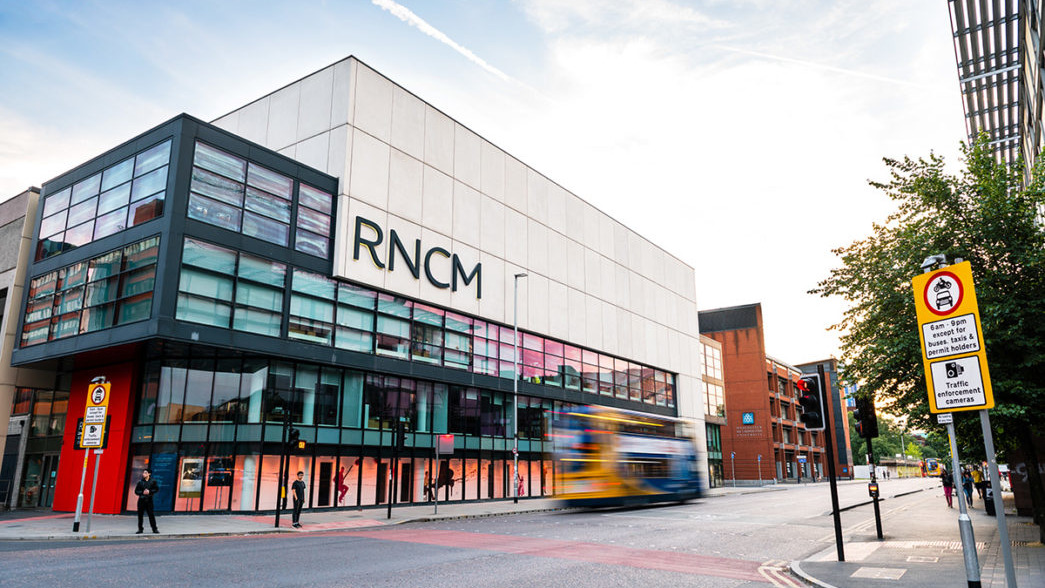What's On
RNCM Research Forum: Dr Michelle Assay
'When Puppets Sing in Tehran’: Reconfiguring Iran’s ‘National’ Opera
Wednesday 10 December 2025, 4.15pm
RNCM Studio 8

About
An all-female Carmen for an all-female audience; Verdi’s Lady Macbeth as a puppet; the Queen of The Night ‘sung’ by five singers; these are some of the workarounds that Iranians have devised as they navigate gender politics and taboos on women’s public performance.
This paper examines opera as the genre best suited to epitomise the country’s historic apparently mutually exclusive quests: for global outreach and conservatism, for progress and tradition. Tracing the transformations of opera – from its introduction in the late 19th century as a part of the Royal fascination with the West to its crucial role in the Pahlavi dynasty’s aggressive Westernisation campaigns, to its disappearance after the 1979 Revolution and its resurrection as a ‘national’ art form – I introduce the concept of a new Iranian ‘opera’ in the shape of the recent phenomenon of puppet operas. This new ‘National Opera’, as its creators call it, brings together Iran’s Ta’zieh, the traditional passion plays with ancient Persian roots, Persian dastgah-based singing, and Western-style composition and orchestrations.
Drawing on historical sources, archives, and oral history, as well as historicising studies, this paper places the relatively new phenomenon of Iranian ‘opera’ within its politico-historical context: from 1960s ‘inter-imperiality’ through to the contested populism of post-‘Khomeinism’ in present-day Iran. I examine the emergence of this ‘opera’ within evolving gender politics and as means of surmounting the imposed restrictions on female solo singing, while assessing the ‘Nationalistic’ claims of its creators. In so doing, I argue that compared to pre-Revolutionary practice, the new Iranian ‘opera’ is more indigenous than Western, more democratic than elitist, and more accessible than exclusive, and as a result, potentially better suited to placing Iran as a major player in the Global musical scene.
Biography
Michelle Assay is a Marie Curie/UKRI Global Fellow at the Universities of Toronto and King’s College London, working on Women and Western Art Music in Iran (womusiran.com). Born and raised in Tehran, Assay trained as a pianist at Kyiv Conservatoire and later in Paris. She holds a PhD in musicology from the Sorbonne and University of Sheffield and has been a Leverhulme Early Career Fellow at the University of Huddersfield, working on ‘Shakespeare and Censorship in the Soviet Union’. She is the author of award-winning articles and chapters on Russian and Soviet music and on Shakespeare and music. Her forthcoming books include Hamlet in the Stalin Era (Routledge), and a co-authored life-and-works study of Jewish/Polish/Soviet composer Mieczysław Weinberg (Toccata Press). She is the founder of the Shakespeare and Music Study Group as well as the Music and Mental Health Group and has most recently launched a new Network for Global Western Art Music (in collaboration with Prof. Robin Elliott and colleagues at the University of Chicago). As a pianist she has featured in premiere performances of Weinberg song-cycles and in collaborations with the world-leading Quatuor Danel. She is a regular broadcaster for the BBC and is a critic and contributor for Gramophone, International Piano, Bachtrack, and La Scena Musicale.
Tickets
Free admission, no ticket required
Promoted by RNCM.
This event will end at approximately 5.30pm.

